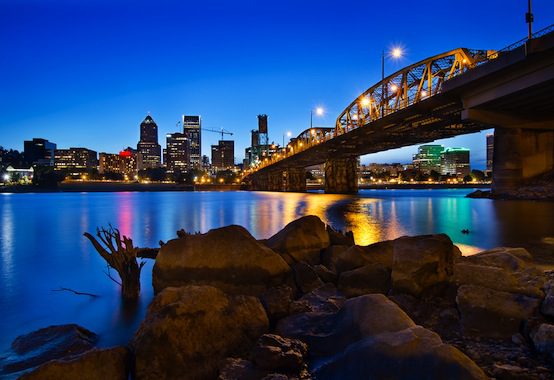Come With Me and You’ll See Into a World of Pure Urbanization

Richey Piiparinen takes aim at the preoccupation with “livability” among city planners, calling it a form of “Willy Wonka urbanism”:
Swap out the over-educated and underemployed for the Oompa-Loompas, chocolate for lifestyle amenities, and the Chocolate Room for the concept of “Portland-as-place”, and you got yourself a sequel. But there are problems with such city building: it’s too often defined by the ephemera, or that “transitory matter not intended to be retained or preserved”. And while the ephemera aren’t building blocks to economic growth—but instead represent America’s tendency to fix hard structural deficits with the airy promises of the pleasure principle—they are nonetheless a main cog in the modern day city-making machine …
But I would argue that now more than ever we need less fantasy in city building than we do reality—as reality can’t keep being handed off to folks who are unable to consume their way to imagining existence as anything but decidedly not livable.
The piece reminds me of Mark Hemingway’s reflections on Portland last March, in which he describes the light-rail boondoggles, few new jobs, and restrictive “growth boundary” (but what a food scene!):
Brew to Bikes attributes the fact that breakfast in Portland is a dizzying array of sophisticated consumer options to “local self-reliance, sustainable living, and the integrity of craftsmanship.” While it’s hard not to root for entrepreneurial initiative wherever you find it, in Portland it carries a whiff of desperation. I submit that the real reason Portland has a thriving artisanal economy is that the regular economy is in the dumps. Portland’s hipsters are starting craft businesses in their garages and opening restaurants not merely because they “reject passive consumption” but because they can’t find jobs, the kind that offer upward mobility. If there’s a more rational reason why a small city like Portland has 671 food trucks, I’d love to hear it.
Some of this emphasis on “livability” is the inevitable corollary to marketing cities and neighborhoods effectively as products unto themselves, and in Portland’s case, its apparent lack of other marketable traits.
But the notion of “livability,” in a more robust sense or even defined as a consumer experience, seems far more resistant to engineering than the problems for which classic city planning arose–sanitation, transportation, housing, et cetera.
Of all the things planning busybodies could concern themselves with, though, ensuring the right mix for mixed use development, enough street-level shops to attract the “creative class,” or an appropriate number of sidewalk tree boxes seem like relatively harmless projects. Compared to eminent domain confiscations, anyway.
The problem is those things often take place at the expense of less affluent city residents, as in Chicago, or DC where development continues apace while affordable housing has declined by 50 percent in the last decade. It may be amoral market forces pushing a city’s poor off to less “livable” places where they can’t be seen. But it’s unseemly to watch it happen while a city pays for dog parks and bespoke wrought-iron lightpoles.
Comments